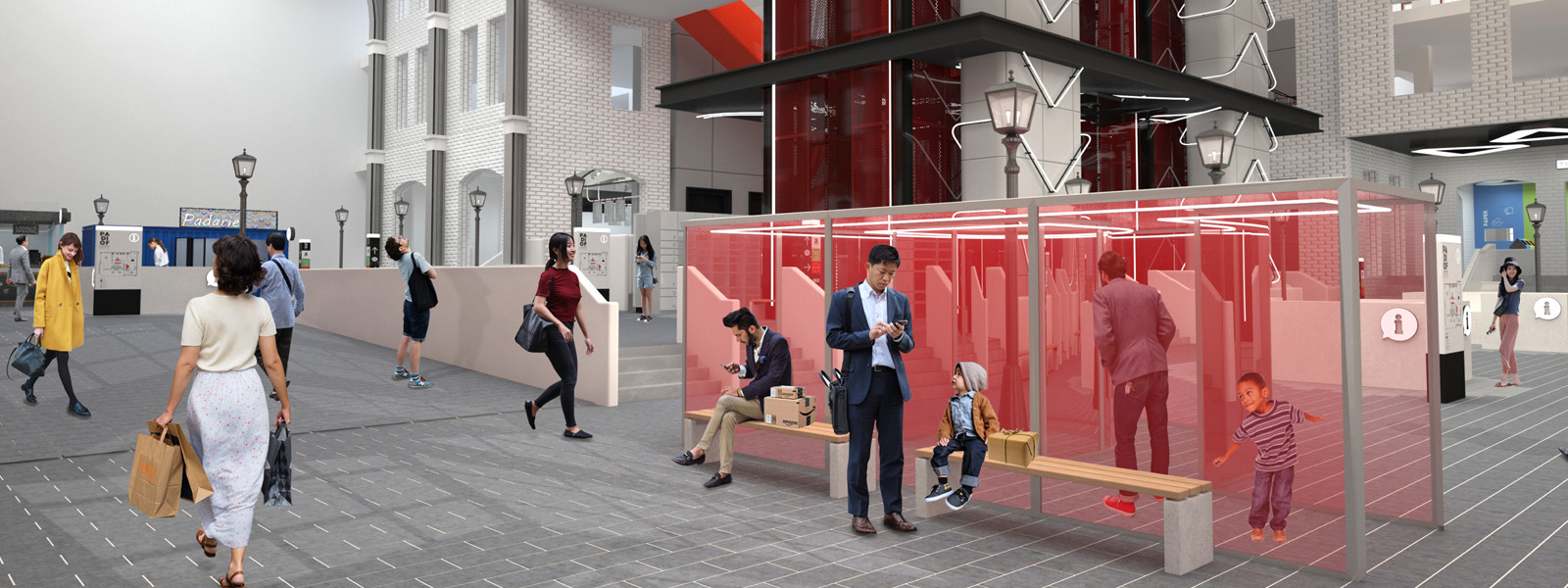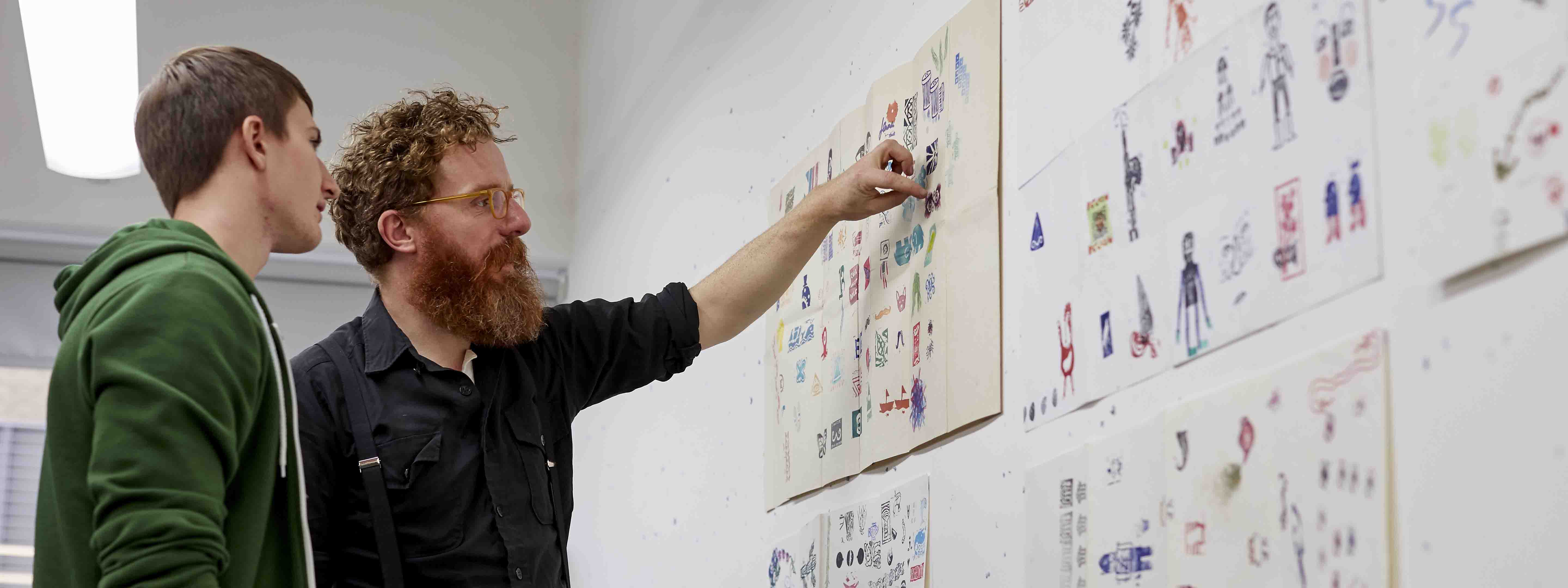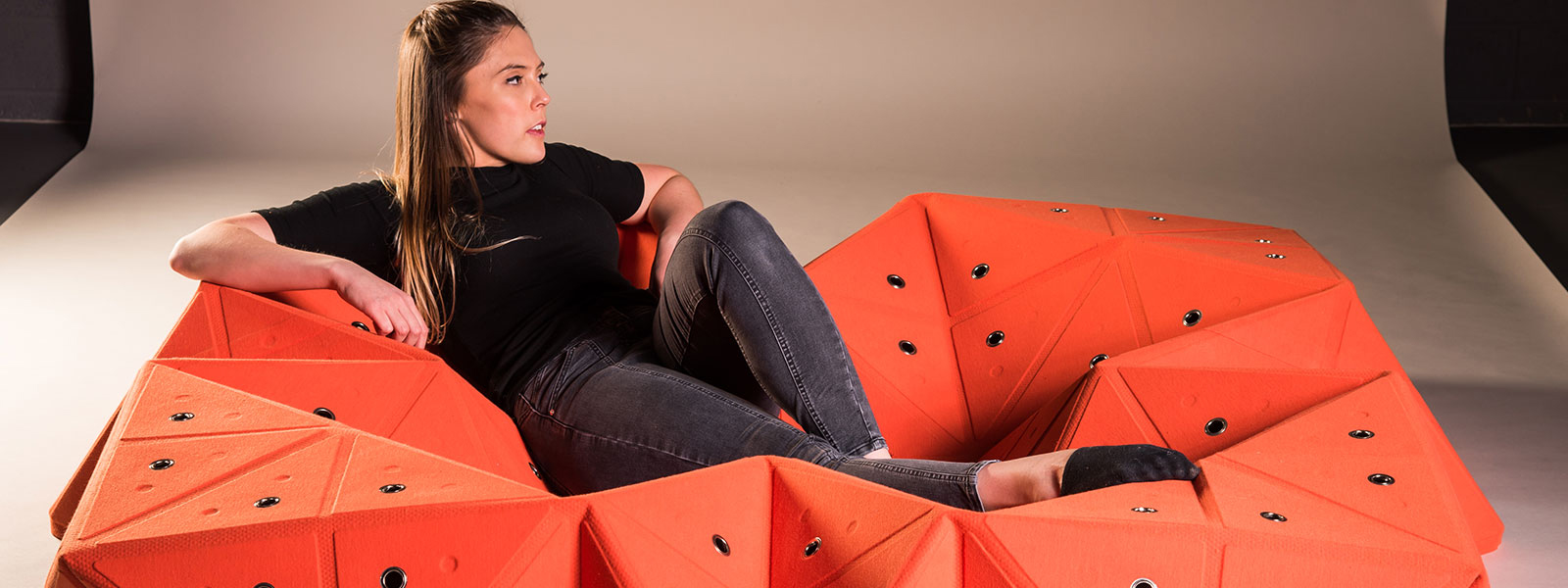Module Overview
The Design 2 stream forms the creative core of the programme, immersing students in studio-based environments that simulate professional design practice. This stream equips students with essential skills in observation, visual literacy, critical inquiry, experimentation, and iterative problem-solving. Through problem-based learning, students tackle real-world design challenges, learning to identify opportunities, develop innovative interventions, and deliver thoughtful, responsive solutions.
Collaborative projects foster teamwork and reflective dialogue, reinforcing the iterative and evolving nature of the design process. This hands-on, experiential approach nurtures creativity, critical thinking, and entrepreneurial design skills while building adaptability and resilience essential for success in a dynamic industry. By combining experiential learning with professional practice, the design stream empowers students to develop design agency, collaborative skills, and innovation—preparing them to graduate as confident, industry-ready professionals.
Module Overview
This Design 2 stream invites students to transform an existing building into an innovative, multi-purpose space, combining adaptive reuse with creative spatial interventions. Through research, analysis, and design development, students respond to real-world challenges of heritage, sustainability, user experience, and professional practice. The module fosters critical thinking, creativity, and professional communication, preparing students to produce and present industry-ready design proposals for complex interior environments.
Module Overview
The "Interdisciplinary Collaboration" module offers an exciting and dynamic learning experience for students in graphic design, creative advertising, illustration, and product design. Each year, the module's projects are tailored to reflect the latest trends and needs in the design industry, ensuring that students gain relevant and cutting-edge skills. With a focus on user experience design, AI in design, influencing and content creation, virtual reality, and design for social change, students will work on projects that challenge their creativity and technical abilities. This module is ideal for those looking to stay ahead in the fast-paced world of design and make a meaningful impact through their work. Additionally, it provides an opportunity for students to shape their own degree, offering pathways for further elective specialisms in Level 3. Students will also have the chance to learn and utilise new industry tools and technologies, and work in new groups outside of their existing course, fostering interdisciplinary collaboration that reflects the current design industry.
Module Overview
The Interpret 2 stream develops critical research skills, design theory, and contextual analysis to inform evidence-based, research-led design practice. This module introduces students to the principles of environmental psychology, exploring how interior, architectural, and urban spaces influence human behaviour, perception, and well-being. Students investigate the relationship between users and environments, analysing how psychological, cultural, and social factors shape spatial experience.
Through lectures and seminars, research is progressively integrated into practice, enabling students to analyse, critique, and communicate ideas while developing awareness of the human-centred considerations in design. The module fosters intellectual curiosity and positions design as a reflective, research-led discipline. By synthesizing theory and practice, students develop independent, research-driven insights alongside professional academic skills in visual, verbal, and written communication.
Module Overview
This module builds on students’ developing research and contextual-analysis skills by focusing on adaptation within interior architecture. Through case studies of transformed interiors—from heritage buildings to underutilised urban spaces—students investigate the cultural, historical and ethical factors that inform the repurposing of existing fabric. Emphasis is placed on balancing conservation and innovation, integrating sustainable strategies and respecting material archeology while introducing new spatial narratives. By synthesising theoretical frameworks with investigation, learners will produce evidence-led proposals that demonstrate independent, research-driven solutions and professional-level communication skills.
Module Overview
The Realise 2 stream equips students with the skills and knowledge to transform design concepts into professional, technically resolved interior architecture proposals. Through a focus on adaptive reuse, students learn to navigate the complexities of designing within existing buildings, addressing structure, materials, sustainability, and building regulations. Working independently and collaboratively, students produce a complete technical design package and a professional presentation, preparing them for the realities of interior architecture practice and the demands of industry.
Module Overview
The Practice 2 streams' core objective is to cultivate a dynamic learning experience where students actively engage with diverse creative and design disciplines. Shaped by the research and practice expertise of our staff, students are guided through a comprehensive exploration of the chosen specialist area. This ensures that students not only gain theoretical knowledge but also acquire practical skills, integrating the latest insights and methodologies. The annual updates to the areas of study is another distinctive feature that reflects the dynamic landscape of the interior architecture and design. This adaptability ensures that students encounter new challenges and remain at the forefront of industry developments, fostering a learning environment that is consistently relevant, contemporary, and responsive to the ever-evolving demands of interior architecture and design. the module also places a strong emphasis on ethical and cultural awareness within design.
Module Overview
This module provides an opportunity for students in the Lincoln School of Design & Architecture to spend a semester in Year 2 studying at one of the University’s partner institutions. This opportunity has both academic and personal development dimensions.
In academic terms, during the semester abroad students undertake models that are equivalent to 60 credit module and content at one of the UoL partner institution in semester B.
Participation in study-abroad also offers unique opportunities for personal student development in the wider sense. Although students will be supported through the application process by the Module Co-ordinator and colleagues at the partner institution, much of the responsibility for organising the time abroad rests with the student. Study abroad offers the opportunity for students to develop graduate attributes, a global mindset and transferrable skills as exercise resilience, flexibity and open mindedness when adapting to and working effectively within a different academic culture and environment.
Students must submit an application to the School discuss why they wish to participate in a study period abroad.
Module Overview
The Work Placement Year aims to give students a continuous experience of full-time work within an organisation. It should be a three-way co-operative activity between employer, student and University from which all parties benefit. It is more than simply obtaining work during a gap in study – work placements should enable students to experience at first hand the daily workings of an organisation while setting that experience in the broader context of their studies.
The Work Placement Year constitutes a minimum of 24 weeks work placement during an academic year, funded by full-time paid employment, normally taking place between year 2 and year 3. (It should be noted that leave does not count as part of the 24 weeks.)
All students on the Work Placement Year as part of their full-time undergraduate study will remain enrolled with the University during the period of placement and receive support. Students originally enrolled on 3 year programmes wishing to transfer to the 4 year programme must do so before the commencement of their placement, should gain the consent of their funders, where appropriate, and advise the University of their intentions before the September enrolment.
Students on three-year programmes who suspend their studies for a year to gain work experience will not be officially recognised as placement students on the Placement Year, will not be enrolled for the Work Placement Year will not be supported by the University and are not considered as students of the University for that year.







